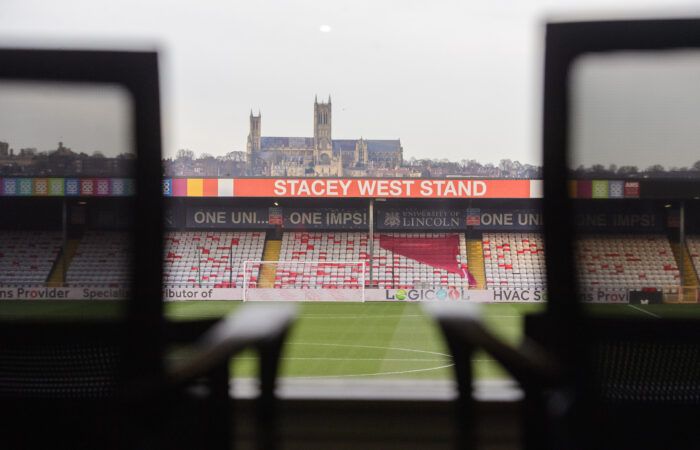Mark 14:3-9
A talk by the Canon Chancellor, the Reverend Canon Dr Mark Hocknull, first given in Lincoln Cathedral on Sunday 5 March 2017.
When I was a theology student, one of my teachers said to the seminar I was attending “The most important lesson in learning to read the bible well is learning to be surprised.” It was a curious thing to say and perhaps that is why I have remembered it. We’ve all known these stories since we were knee high to a grasshopper as another teacher of mine used to say. We are very familiar with the stories and that makes us more likely to think that we know their meaning. We know that the Samaritan is good, though Jesus original hearers would have been very surprised at his behaviour or that Jesus was critical of the Pharisee and the priest. Our knowledge and our assumptions get in the way of our learning something new or seeing in the story something that we have not seen before.
For Christians, Lent can be a time for seeing things that we have not seen before. It’s a good time to learn to be surprised by God and by the Scriptures. If we can do that, we will be well on the way to being open to change and to letting God’s spirit renew our lives.
So we turn to Mark’s version of the anointing of Jesus. This is the Gospel in a nutshell. The story is about an ordinary person who could be you or me expressing her love for Christ by an act of open, spontaneous generosity towards him. The action generates hostility and misunderstanding from those around her who should have known better. But from Christ himself, her reward is to be fully accepted as a true witness to his coming death. The woman in other words is a model disciple.
Perhaps one of the surprising things about this story is that even though it ends with the woman being lavishly praised by Jesus, we are never told her name. The woman is and remains anonymous. She is not alone in her anonymity. Simon peter’s mother-in-law, the woman with the haemorrhage, the daughter of Jairus, the ‘many women’ who followed Jesus from Galilee and were present at the crucifixion. Then there is the man possessed by demons, the leper, the man with the withered hand, the deaf mute and the centurion at the cross.
Anonymous, ordinary people, outsiders and insiders, people at the margins and people in the centre children as well as adults. In other words, you don’t need special qualifications to be a follower of Jesus and to belong to the people of God. Gender, rank, status, property, health, occupation all matter a great deal in the world. It’s not that these things cease to matter when we become Christians, but they no longer carry the same significance for us. Indeed unless we learn to see them in the true light of the gospel, they may even get in the way and become stumbling blocks for us. The gospel is for those whom we might call ‘little people’ and it is the ‘little people’ who show us what the gospel is all about.
Here it is an anonymous woman.
The woman is commended, not for her words but for her action. Yet what she does is so wasteful! Twice we are told how valuable the ointment is. It is very expensive, cosying almost a year’s wages. Breaking the bottle that contains the oil is even more wasteful: it can never be used again. Her action makes no economic sense whatsoever. But maybe that is the point. We are dealing here with the strange economy of love. The economy of love works along very different lines. In this economy, the appropriate way to behave is not a matter of mere financial calculation. It demands passionate and total self-giving in response to the moment that Jesus gives us. Jesus commends the woman not for a grand romantic gesture, but for simply doing what she could, doing what lay in her power. I think many of us are tempted by the grand gesture, the big life-changing scheme or attempting the impossible. The woman on the one hand is not daunted by the possibility of doing something when the moment presents itself. But on the other hand, she does not overreach herself. She does the possible in the time available. There is wisdom and challenge here: to do for god and for our neighbour what lies already within our power and to confront the pride and self-protectiveness which holds us back from doing anything for fear that we cannot do everything.
Of course we need to be good financial managers, but for Christians, it ought to be the case that this uneconomic economy of the Kingdom underpins all that we do in the world. If it does not, then the church becomes merely another organisation no different to any other worldly organisation no matter how many times it uses the words mission and love.
Because the woman is anonymous, as are her accusers, we are invited to identify ourselves with one or other of the two parties.
The temptation of course is to identify ourselves with the woman. She is the one in the right after all. But let’s not be too hasty. The story of the anointing of Jesus invites us to see our own life story in the light of the woman’s story. If we are truly honest with ourselves, where does our life story fit? Are we openhearted and generous or are we more judgmental and cold and rational? To see our life story in the light of the Gospel presents us with a life-transforming opportunity.
Perhaps you think of yourself as very ordinary, someone who does not matter very much. Mark’s gospel is full of stories of people just like that. They are the ones to whom Jesus comes with grace and healing. Or perhaps, if we are honest we are the kind of people who insist on recognition and status, who get defensive or even aggressive when criticised or resisted. But then again perhaps such an attitude disguises a vulnerability that we dare not admit to or a fear of being no one or not listened to. A great fear amongst many of the clergy I know from experience. To us too Jesus comes with grace and healing. Dare we have the courage this lent to embrace that grace and healing and to start afresh? It may be our last chance.
The wastefulness at the heart of this story is something which, if we let it, can break the mould in the way we live and in the way we relate to god and to one another. Here there is no calculation of what we might get out of it. Life is more than can be measured. There is just the joy of giving and being given to.
Give up things this lent by all means, but don’t dwell on this. It has always seemed to me that this is a destructive and negative focus, because the emphasis is on us and what we are doing, about our efforts. Rather than leading us deeper into God, it drives us further away by putting the focus on what we are doing. Instead this lent try and make room for the utterly reckless divine economy of love and allow yourself to be surprised by God.
The Canon Chancellor will continue his series of Lent Talks at Evensong on each Sunday of Lent. Evensong on a Sunday begins at 3.45pm and is held in the Choir of Lincoln Cathedral.

